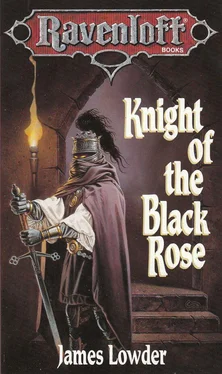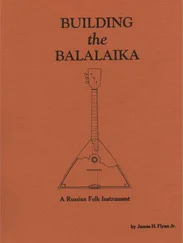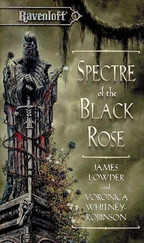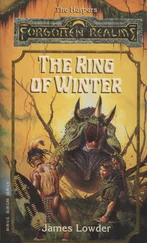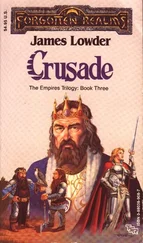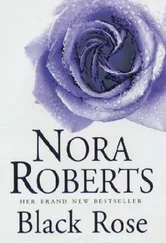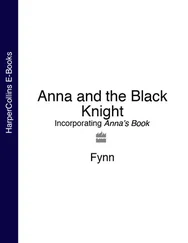James Lowder - Knight of the Black Rose
Здесь есть возможность читать онлайн «James Lowder - Knight of the Black Rose» весь текст электронной книги совершенно бесплатно (целиком полную версию без сокращений). В некоторых случаях можно слушать аудио, скачать через торрент в формате fb2 и присутствует краткое содержание. Жанр: Фэнтези, на английском языке. Описание произведения, (предисловие) а так же отзывы посетителей доступны на портале библиотеки ЛибКат.
- Название:Knight of the Black Rose
- Автор:
- Жанр:
- Год:неизвестен
- ISBN:нет данных
- Рейтинг книги:3 / 5. Голосов: 1
-
Избранное:Добавить в избранное
- Отзывы:
-
Ваша оценка:
- 60
- 1
- 2
- 3
- 4
- 5
Knight of the Black Rose: краткое содержание, описание и аннотация
Предлагаем к чтению аннотацию, описание, краткое содержание или предисловие (зависит от того, что написал сам автор книги «Knight of the Black Rose»). Если вы не нашли необходимую информацию о книге — напишите в комментариях, мы постараемся отыскать её.
Knight of the Black Rose — читать онлайн бесплатно полную книгу (весь текст) целиком
Ниже представлен текст книги, разбитый по страницам. Система сохранения места последней прочитанной страницы, позволяет с удобством читать онлайн бесплатно книгу «Knight of the Black Rose», без необходимости каждый раз заново искать на чём Вы остановились. Поставьте закладку, и сможете в любой момент перейти на страницу, на которой закончили чтение.
Интервал:
Закладка:
The zombie waded into the forest. The monstrous wolves also faded into the trees one by one until only a solitary beast remained. This wolf glared at the death knight, and the small fires on the hillside made its eyes sparkle malevolently in the night. Soth met that savage stare with his own unblinking gaze.
At last the wolf turned and retreated. As he hacked the clutching hands from his ankles, Soth could hear the wolves barking and yelping as they spread out in the forest, heading west. The death knight knew their noise was meant for him. “Follow,” they were saying.
The death knight tossed the writhing limbs and bodies onto a pyre. He bolstered the fire with chunks of the shattered tree, though the wood did not burn even half as well as the undead flesh. The blaze sent even more thick, pungent smoke into the night sky.
A few stars winked against the carpet of black, but their positions seemed random to Soth. Gone were the Dark Queen, the Valiant Warrior, all the constellations that defined the night sky of Krynn. Gone, too, were the black and red moons. Only a single gibbous orb, its light reflecting brightly, hung overhead.
“I am far from Krynn,” Soth said. After a pause, he added, “But I will not return there until I find Caradoc, until I know where he has hidden Kitiara’s soul.”
To the west, a wolf howled long and low.
The death knight sheathed his sword. “Your master lies at the end of your trail, and he might be of aid to me in finding my wayward servant,” he said. “I will follow and let you take me to this ‘Strahd.’ ”
• • •
Bony, age-spotted hands caressed the crystal ball like a lover. The milky white glass glowed slightly under their touch. The ancient artifact would reveal nothing to the casual observer. To the scarred fingers weaving intricate patterns upon it, however, the crystal ball had much to say.
“Urrr,” the ancient mystic groaned pensively. He closed his blind eyes and rubbed his fingers over the globe with more urgency. The light from the crystal grew more intense, casting ominous shadows over his wrinkled face.
The old man removed his hands from the glass suddenly, almost as if he’d been burned. With jerky movements, he reached for the parchment and the feathered quill pen that lay nearby. He turned his sightless eyes, as white as the crystal orb, to the paper and started to write.
The lines wandered across the page, some sentences crossing over others, some curling almost in a circle around the parchment’s edge. Yet the mystic’s hand never strayed from the yellowed paper, and, for those used to reading his scrawl, the message was quite legible.
When the old man finished writing, he swayed for a moment, then lowered his head to the rutted tabletop. “Let us see what you have learned,” came a silken voice from the other side of the room.
With a word of magic, a half-dozen candles burst into flame. A slender hand gloved in kidskin lifted the candelabra that held the wax sticks. Warmly their light flowed across the stone floor and onto the table where the mystic lay, exhausted. The possessor of the voice reached into the pool of light and gently lifted the parchment.
Two have arrived, the message began, one of great power, both of great use. The sins of ancient wrongs unforgiven bring them to your garden, though they know neither the Dark Powers nor the place to which they have been brought. Boarhound and boar, master and servant; do not hope to break their pattern. Honor it instead.
The graceful man placed the candelabra on the table, the parchment held absently before him. His eyes bore a vacant, distant look, and his lips were turned down in a slight frown. His dark clothes and his long black cape swallowed the light striking them, but the large red stone that dangled on a chain of gold from his neck reflected the candlelight sharply. Tracing his high cheekbone with a single finger, he stood elegantly, lost in thought. At last he reached down and stroked the old man’s snowy head.
“It is a shame your visions cannot provide you with more specific messages, Voldra,” Count Strahd Von Zarovich said, though he knew the mystic could not hear him. The old man was as deaf as he was blind. “At times like this I almost wish I hadn’t torn your tongue out. Ah, well, it cannot be helped. We could not have you revealing my secrets to the villagers if you escaped, could we?”
The count crumpled the parchment and tossed it into the empty fireplace. The paper burst into flames. “Boarhound and boar,” Strahd repeated as he opened a hidden panel in the stone wall. In the tiny alcove he placed the pen, ink, and crystal ball. “Intriguing.”
The mystic stirred and reached out for the crystal ball. “Urrr,” he groaned plaintively when he found the table empty before him.
The globe was Voldra’s only means of contact with the world. It provided the old man, who had been deaf and blind from birth, limited glimpses into life beyond his sheltered mind. The orb granted other gifts, as well. The mystic had never learned to write; in the farming village where he’d lived much of his life, there was little need for such skills. The crystal ball allowed him to join pen to paper and make meaningful, if somewhat vague, statements.
The wordless, strangled cries of his prisoner hardly touched Strahd’s consciousness as he crossed to the iron door and left the barren cell. His mind was coiling itself around the notion that the two strangers might prove useful to him. The count had known one of them was quite powerful even before Voldra’s scribbled message; no being with strength of will or spell entered the duchy without Strahd’s knowledge.
Strahd knew that the zombies he’d sent to test the newcomers’ strength had been destroyed. He knew, too, that the weaker of the two strangers had fled into the forest before the battle. The wolves were following that one, herding him toward the castle.
The other would prove more of a challenge. The thought excited Strahd; it had been a long time since a problem worthy of his serpentine intellect had presented itself. The thing to do now, he decided as he paced with stately grace down the lightless corridor, past the sobbing prisoners in their filthy cells, was to gather more information.
FOUR
The tearful keening of a violin filled the clearing and twined with the moonlight in the forest. The man playing the sad, rustic melody tapped his foot in time with his bow’s movement. Nearby, two dozen men, women, and children sat in the glow of a campfire. The small crowd swayed to the music as if they were cobras mesmerized by a serpent tamer’s flute.
Seven caravans were drawn into a semicircle around the forest camp. Ornately carved, brightly painted creatures and designs covered the large wagons, and these now served as a backdrop for the young man playing the violin. The multicolored scarf tied around his head and the similarly dyed sash girded about his thin waist blended in with the garish wagons. His tight black pants and the white shirt hanging open at his neck were in contrast to them.
As the song wound to its conclusion, the musician picked up the tempo. He played the last few bars boldly, in defiance of the piece’s somber tone. Three notes plucked, pizzicato, from the strings concluded the tune. After, all was silent in the midnight forest save the crackling campfire. The musician expected no applause, for these were his nephews, cousins, and grandparents who were listening to him play. Their thoughtful silence told Andari his music had touched them, and that meant almost as much to him as the coins that sometimes rewarded his performances for strangers.
The young man wrapped his violin in a thick, embroidered cloth, stolen yesterday from a village nearby. He took meticulous care of the instrument. It had been handed down from father to son for five generations now, and he intended to give the violin to his own eldest boy when his fingers were too cramped to play.
Читать дальшеИнтервал:
Закладка:
Похожие книги на «Knight of the Black Rose»
Представляем Вашему вниманию похожие книги на «Knight of the Black Rose» списком для выбора. Мы отобрали схожую по названию и смыслу литературу в надежде предоставить читателям больше вариантов отыскать новые, интересные, ещё непрочитанные произведения.
Обсуждение, отзывы о книге «Knight of the Black Rose» и просто собственные мнения читателей. Оставьте ваши комментарии, напишите, что Вы думаете о произведении, его смысле или главных героях. Укажите что конкретно понравилось, а что нет, и почему Вы так считаете.
